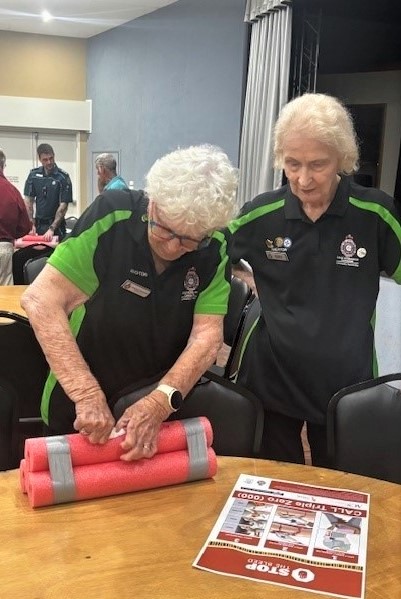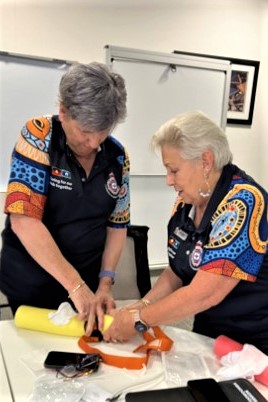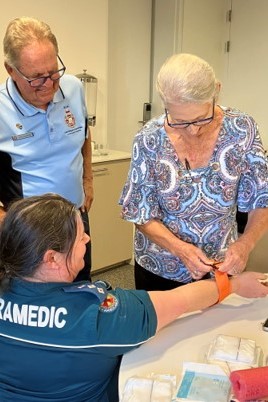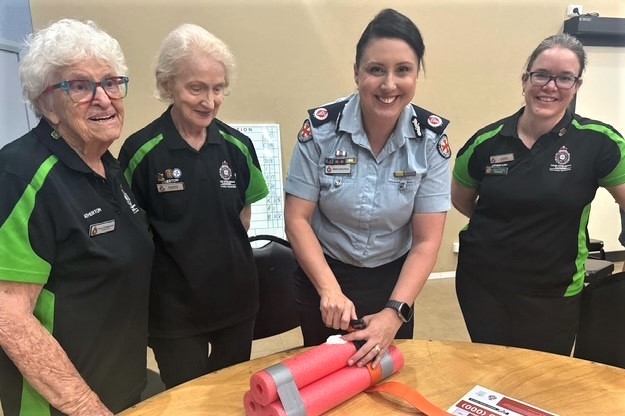
In a first for Queensland Ambulance Service’s community engagement, 12 officers have recently undertaken training to deliver a game-changing education program to some of our most remote communities using traditional languages.
The QAS officers will teach STOP THE BLEED® in Far North Queensland’s more remote Aboriginal and Torres Strait Islander communities using traditional Yarning Circles.
STOP THE BLEED® is a simple but exceptional first aid program promoting the use of a three-step strategy to prevent critically injured people from bleeding to death.
QAS’s Statewide Community Engagement Operations Supervisor Suzette Dakin said the rollout has just begun, with Local Ambulance Committees also being trained up to provide additional training and support to these officers and their communities.

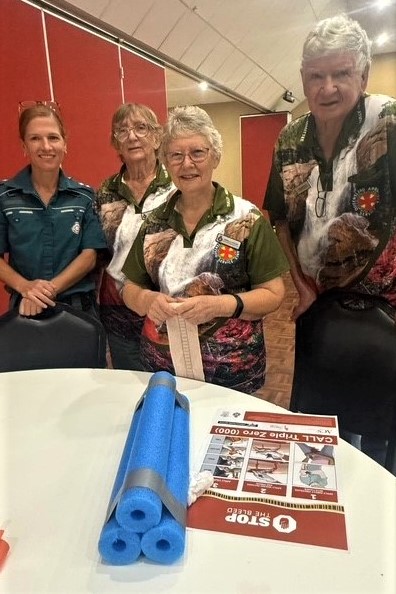
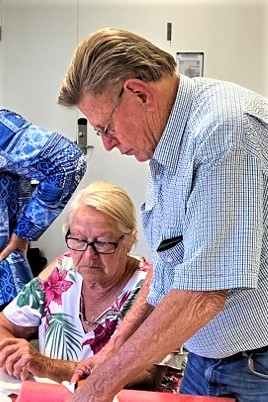
“Because of our state’s size (being second only to Western Australia) and vast travelling distances combined with our low population density, being able to teach simple life saving skills to our more remote communities will go a long way to saving more lives,” Suzette said.
“These communities are more vulnerable to traumatic injuries from farming, road, hunting, fishing, animal and other nasty accidents, where the tyranny of distance works against them receiving timely medical intervention.
“The STOP THE BLEED program keeps things simple and teaches three easy steps – using hands to apply direct pressure to a wound, packing a wound to control bleeding and correctly applying a tourniquet.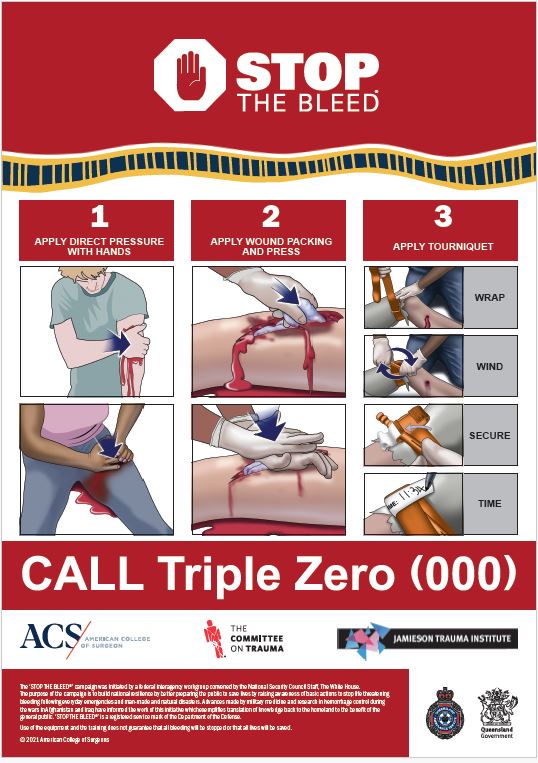
“While our multilingual staff are often encouraged to use their extra language skills to build trust and rapport with their patients, the use of languages spoken at home to deliver specific education programs like these have untapped potential.”
Suzette said training templates have been developed which enable the officers to translate the guides into their own languages.
“These can also be left with their communities to act as a reminder or prompt, as well as a teaching aid.”
Suzette said while official community engagement in traditional language is still in its infancy, officers have also started delivering a second program, this time aimed at primary school aged children – RESQ R000’s – which was refreshed earlier this year.
“One of our Indigenous Paramedic Program officers, Rob Minniecon, who is still undergoing his training, has already been out to his Port Douglas community to deliver RESQ R000’S alongside Port Douglas Local Ambulance Committee (LAC) volunteers.
Rob is looking forward to being able to deliver this program in language and the Port Douglas LAC isso excited to have him joining them in the near future,” she said.
“Most people in our regional and remote areas don't seek first aid accreditation, they just want the knowledge, skills and confidence to manage an accident or medical emergency until paramedics arrive and the STOP THE BLEED program will make a big difference.”
Along with the LAC volunteers, the officers involved in this rollout include: Robert Minniecon, Monica Fourmile, George Fennemore, Ashleigh McCormack, Sonia Hodges, Claine Underwood, Wade Munns, Mandy Barr, Brendon Goldsworthy, Antonella Ryan, Krystal Smith, Taahlia Ahipene, Simone Thomas, Mark Ward and Woodford-based Ivan Jelcic.
QAS Cultural Safety Unit's Senior Advisor Angela Perry has been working closely with Suzette and Deputy Medical Director Dr Dan Bodnar on this project.
"This has been an exciting project to work on with the other stakeholders," Angela said.
"To be able to deliver critical first aid education to people in the language they are most comfortable with and to be able to do it in safe and relaxed learning environment is going to be a huge step in improving health equity for rural and remote communities."
"It has been great to see the enthusiasm in the uptake of the pilot and we can't wait to see it rolled out into other communities."
Far North Queensland’s Acting Cultural Safety Support Officer and Torres Strait Islander Elder George Fennemore said he recently travelled to Thursday Island to yarn about this community engagement with Thursday Island Elder and Station OIC Deidree Whap and the team.
George said the initiative was met with enormous enthusiasm.
“While we have our own dialects, generally in the Torres Strait we speak Yumplatok (meaning ‘us talk’), also known as Creole,” George said.
“This community engagement will go a long way to breaking down some of those health barriers with community, as people tend to only see the QAS when someone is either sick or injured.
“STOP THE BLEED will be great for the Torres Strait communities because we get all sorts of injuries, whether it’s crocodile or shark bites, spear fishing or boating and car accidents, and this program is simple to remember and easy to pass on.
“Delivering these programs through our Yarning Circles in Yumplatok means our people can learn these important skills and knowledge and we’ll see a ripple effect as they are passed on through family members and the community.”
STOP THE BLEED was developed in the United States by the American College of Surgeons in the aftermath of the devastating mass shooting at Sandy Hook Elementary School in 2012 during which 20 students and 6 adults were killed.
A partnership between the Queensland Ambulance Service, The Jamieson Trauma Institute and Metro North Health Service has brought STOP THE BLEED to the state to increase people’s awareness of what to do to prevent people from dying from blood loss because of a traumatic accident.
